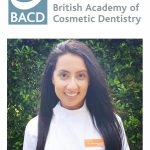Poor nutrition is a leading cause of mortality worldwide and a preventable risk factor for the four main types of noncommunicable diseases (NCDs); cardiovascular disease, cancers, chronic respiratory diseases and diabetes.[i] Findings from a study which looked at the health effects of dietary risks in 195 countries, by evaluating their consumption of major foods and nutrients, concluded that they “affected people regardless of age, sex and sociodemographic development of their place of residence”.[ii]
The results clearly showed the need for “coordinated global efforts to improve the quality of the human diet” while recognising the “complexity of dietary behaviours”. So, for action to be effective it must be targeted. In the UK, public health campaigns around nutrition, such as Change4Life, have tended to target obesity. Obesity is a significant public health burden across all four countries and the latest available figures for England showed that 67% of men and 60% of women were either overweight or obese. Worryingly, 20% of Year 6 children (ages 10-11) were also classified as obese.[iii] Being overweight or obese is a key, modifiable risk factor for all NCDs.
In the UK, one of the biggest nutritional threats to good health (and maintenance of a healthy weight) is our love of sugar. Taking regional variations into account, we consume far more processed foods and those containing free sugars – sugars added to food or drink, or that naturally occur in things like honey – than we should. According to a study from 2019, ultra-processed foods accounted for 56.8% of the total energy intake for a sample of over 9000 adults and children, with 61.3% of the adult sample exceeding the recommended daily free sugar intake.[iv] Of concern was that the percentages of children and adolescents exceeding the recommended daily limit for free sugars were even higher, at 74.9% and 82.9% respectively. With ultra-processed foods often being full of sodium and trans fats too, our diet circa 2019 was a recipe for disaster.
The evolution of how we eat
Pre-2020, discussions about dietary behaviours in the UK often considered if how we were eating was impacting on what we were eating. In other words, our growing snack culture. Rather than the three meals a day, busy modern life meant plenty of school children were skipping breakfast and grabbing a snack and fizzy drink mid-morning instead and office workers were eating something shop-bought and on-the-go rather than taking a proper lunchbreak. When daily routines were turned upside down, did the pandemic change how – and what – we eat?
Only time will tell. There is plenty of anecdotal evidence that, certainly in the short term, many people struggled with maintaining a healthy diet during the crisis – sweet food, also alcohol, can be comforting in tough times. The pandemic impacted drastically on millions of people’s food budgets as well; child food poverty was brought into the spotlight.
This year, there is real opportunity to encourage better dietary behaviours, and the value of good nutrition to support physical and mental health has never been higher. Good nutrition is preventive for serious NCDs, and oral health practitioners are perfectly placed to deliver this message to their patients, even those who are “well”. The obvious starting point is helping them to reduce sugar consumption. From a dental perspective, it will reduce their risk of caries and other oral disease, also things like halitosis and hypersensitivity. More generally, cutting down on sugar will mean they look and feel better.
They should understand a nutritionally varied diet will absorb the odd, sweet treat too. The term “self-care” has become ubiquitous, but if someone wants a biscuit with their cup of tea after a horrible day, when the bigger picture is good, they should have it. To support your patients’ optimal health, encourage them to focus on what they are adding, rather than taking away.
So, they can reduce sugar, but add lots more things to their diet – more calcium, nuts, seeds and legumes, for example. They can also add to or enhance their daily oral care routine, by doing something as simple as swapping their toothpaste. Arm & Hammer™ toothpastes have baking soda added to their formulations for powerful plaque removal, if teeth are sensitive, Arm & Hammer™ has Sensitive Pro™ daily toothpaste contains both sodium fluoride and calcium phosphates. When used regularly, these can offer lasting relief from hypersensitivity for up to 16 weeks.
Unpicking the problem of poor nutrition in the UK isn’t easy. We consume more free sugars than our nearest geographical neighbours, and processed foods have routinely become an alternative to preparing a meal from scratch. Reducing consumption of sugar is a small change that can have a big impact. As part of an enhanced daily routine, it will allow patients to eat more of the things that benefit their physical and mental wellbeing as well as supporting their oral health.
For more information about the carefully formulated Arm & Hammer™ toothpaste range, please visit https://www.armandhammer.co.uk/ or email: ukenquiries@churchdwight.com
Arm & Hammer™ oral healthcare products are available at Boots, Superdrug, Sainsbury’s, Tesco, Asda and Morrisons throughout the UK.
[i] World Health Organization. Noncommunicable diseases. Key fact, 1 June 2018. Link: https://www.who.int/news-room/fact-sheets/detail/noncommunicable-diseases (accessed February 2021).
[ii] Afshin A, Sur PJ, Fay KA, Cornaby L, Ferrara G, Salama JS, Mullany EC, Abate KH, Abbafati C, Abebe Z, Afarideh M. Health effects of dietary risks in 195 countries, 1990–2017: a systematic analysis for the Global Burden of Disease Study 2017. The Lancet. 2019 May 11;393 (10184): 1958-72.
[iii] NHS Digital. Statistics on Obesity, Physical Activity and Diet, England 2020. Published 5 May 2020. Link: https://digital.nhs.uk/data-and-information/publications/statistical/statistics-on-obesity-physical-activity-and-diet/england-2020 (accessed February 2021).
[iv] Rauber F, da Costa Louzada ML, Steele EM, de Rezende LF, Millett C, Monteiro CA, Levy RB. Ultra-processed foods and excessive free sugar intake in the UK: a nationally representative cross-sectional study. BMJ Open. 2019 Oct 1;9 (10): e027546.



















